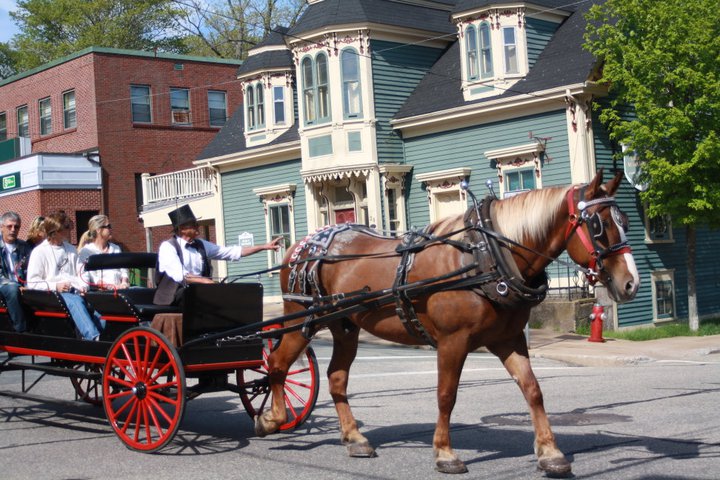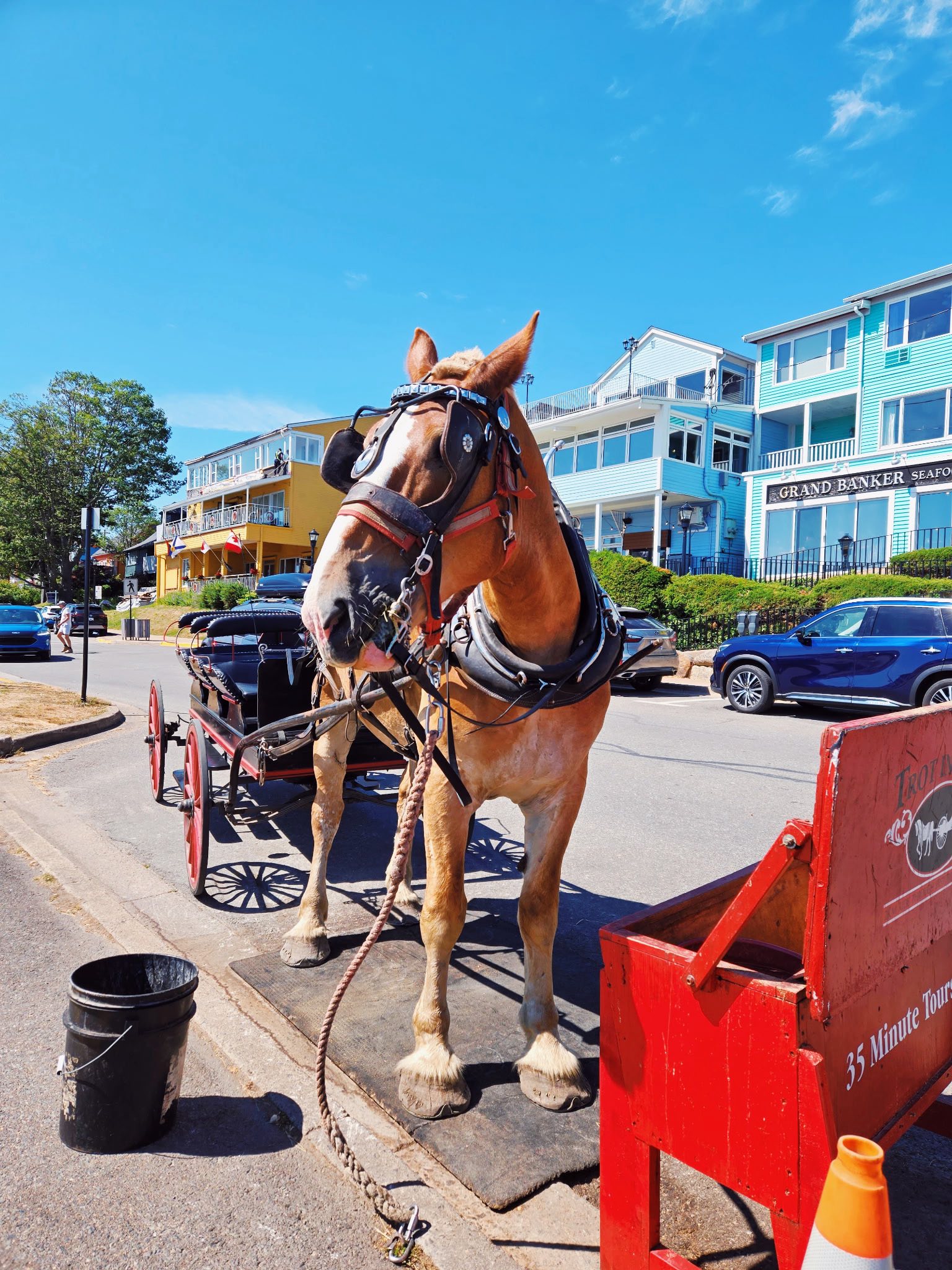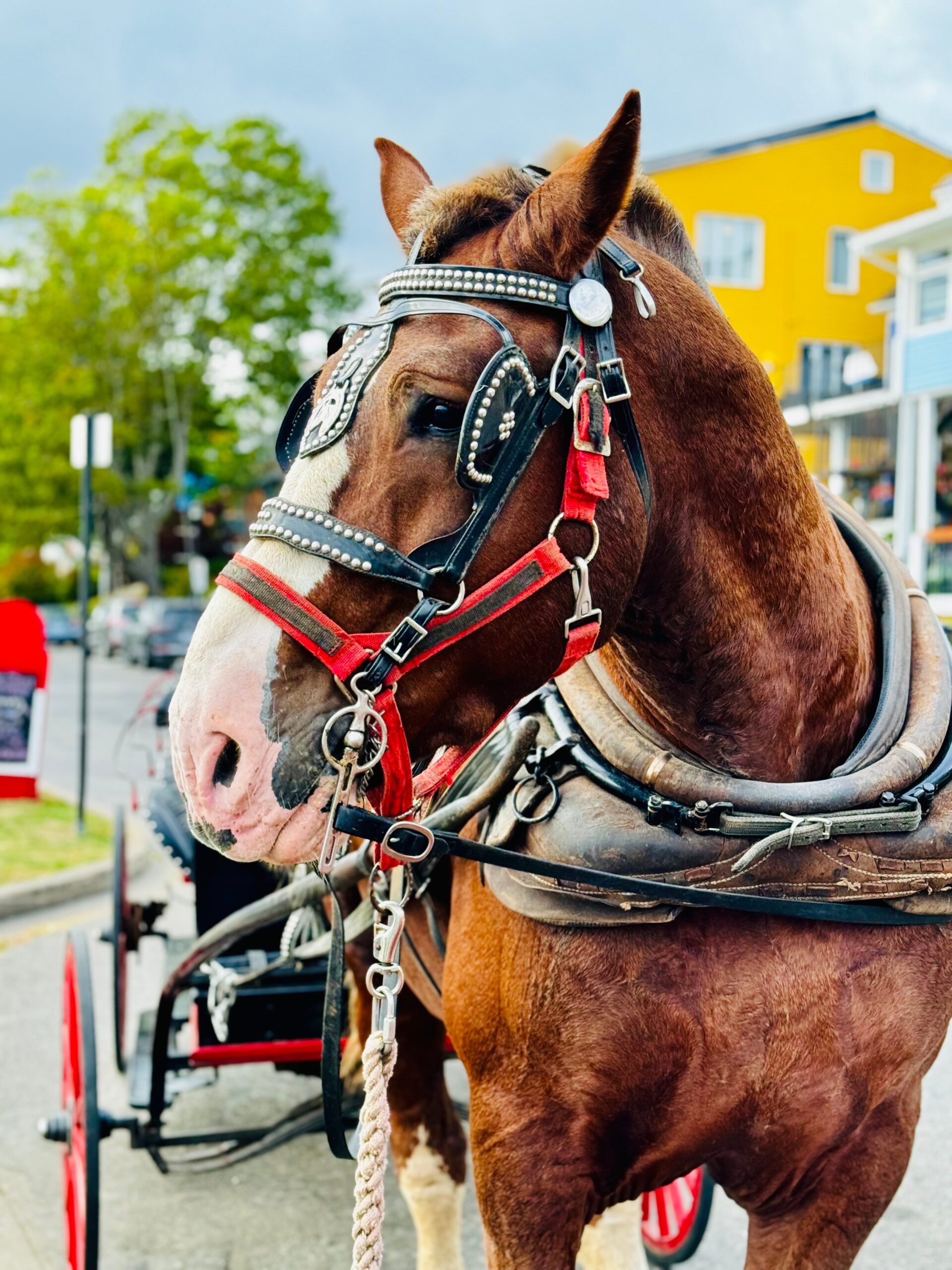
Work horses, like the Belgians we care for, are naturally strong and well-suited for pulling carriages—even in warm weather. Draft horses are renowned for their power and endurance. While riding horses can pull loads up to three times their body weight, draft horses can comfortably haul wheeled loads up to 15 times their weight under ideal conditions. And, considering that many of our horses are between 1600 and 2000 lbs, that makes the work we do easy in comparison!
Belgian drafts are perfectly suited for tasks like pulling carriages and have been bred over centuries for heavy-duty work. Much of this work historically has been in very hot conditions – pulling a plow, a hay wagon, or a heavy load on hot summer’s days. Many draft breeds have been used for centuries to perform physical labor, and their physiology allows them to handle heat better than many might think. However, just like humans, horses need support to stay comfortable and safe during hot conditions.
At Trot in Time we take the following steps to foster healthy and safe working conditions for our equine team:
- Rotating Schedules: Horses work on rotation to ensure ample rest at our farm, which features open fields and shaded areas for relaxation between shifts.
- Hydration Breaks: Fresh water is always available after each tour to keep them hydrated and energized.
- Cooling Techniques: On hot days, we wipe down our horses between tours to help them cool off more efficiently.
- Weather Monitoring: Tours are adjusted or canceled if temperatures or humidity levels exceed safe thresholds.
If our team observes signs of discomfort or heat stress in our horses, the issue is immediately flagged and the horse is assessed prior to any further physical exertion.
Recognizing Heat Stress in Horses
While our horses are carefully monitored, understanding the signs of heat stress is essential for anyone concerned about their welfare. Heat stress can develop when a horse’s natural cooling mechanisms—like sweating—are overwhelmed.
At Trot in Time, our drivers and waterfront staff undergo specialized training on Horse Care and Wellness. Here are the key indicators that we look for that indicate a horse may be experiencing heat-related discomfort:
- Increased breathing rate even after resting.
- Excessive sweating or reduced sweating (anhidrosis).
- Hot skin on the neck or chest areas.
- Lethargy or reluctance to move during work.
- Behavioral changes such as drooping ears or a dull demeanor.
If any of these signs appear, we immediately cool the horse down with water baths, provide rest, and consult a veterinarian if necessary.
Dehydration: A Key Concern
Dehydration can develop quickly during warm weather or physical exertion but is preventable with proper care.
Signs of Dehydration:
- Loss of skin elasticity (a pinch test on the shoulder should snap back quickly).
- Dry gums or tacky saliva.
- Reduced energy levels or reluctance to work.
Hydration Practices at Trot in Time:
Our horses have constant access to fresh water before and after each tour at their station. Electrolytes are added to their diet when necessary to replenish minerals lost through sweat, and their mid-day grain is soaked, which increases water intake naturally. On hot days, we may also monitor urine output and color to ensure adequate hydration and comfort.
Trot in Time staff are also trained to look for other key issues that may impact the comfort and well-being of our horses.
Why Horse Care Matters at Trot in Time
Keeping our horses comfortable, healthy, and ready to work is central to everything we do. We love and value our horses as not just as team members and companions but, to put it bluntly, responsible horse care is also simply good business. Horses represent a significant investment, and ensuring they’re in peak condition means they’re able to do their jobs safely and reliably. At Trot in Time, our careful monitoring and proactive care protect not just our horses but our livelihoods as well.
If you have any questions about how we manage horse care—especially during hot weather—please ask. We’re proud of our standards and happy to share them.
~ Mary Gilson


